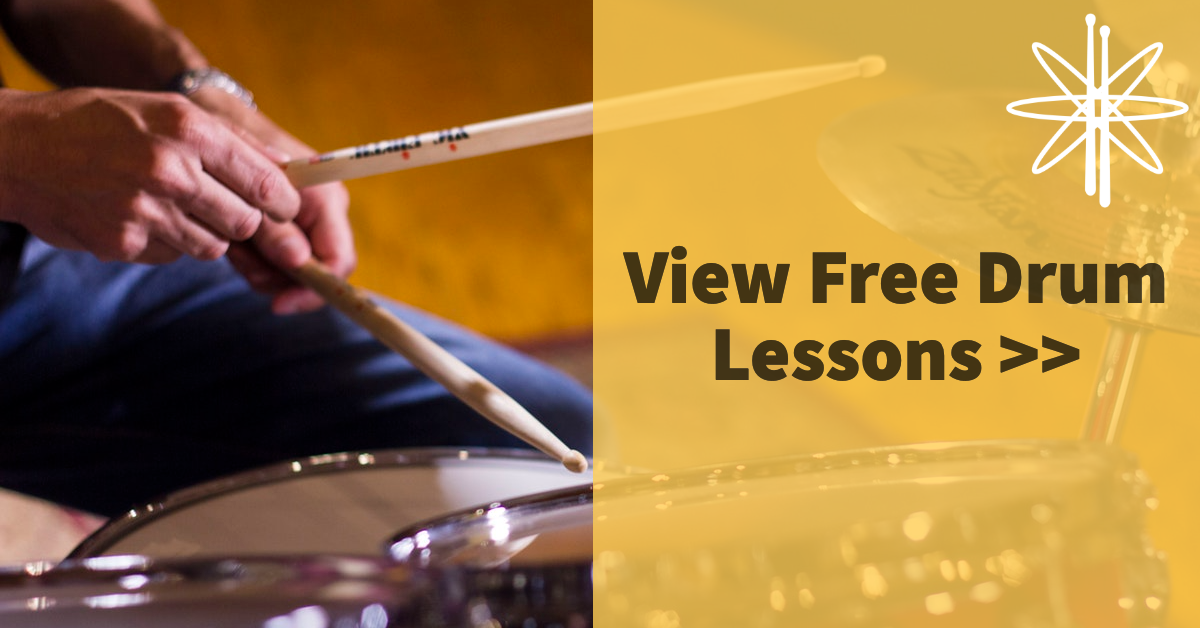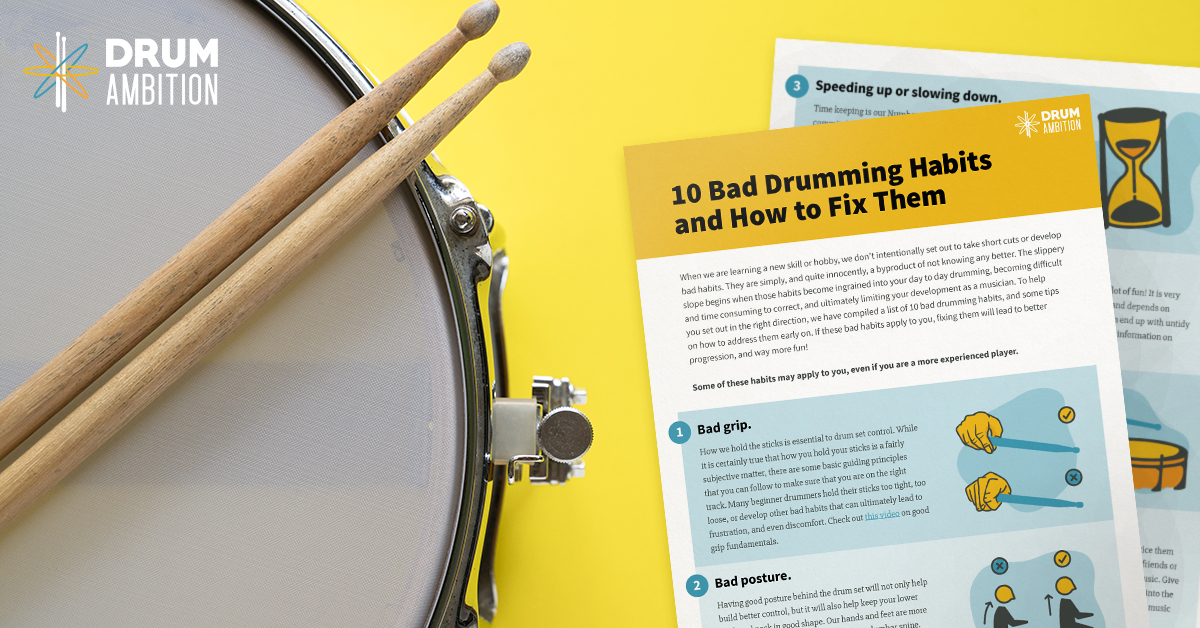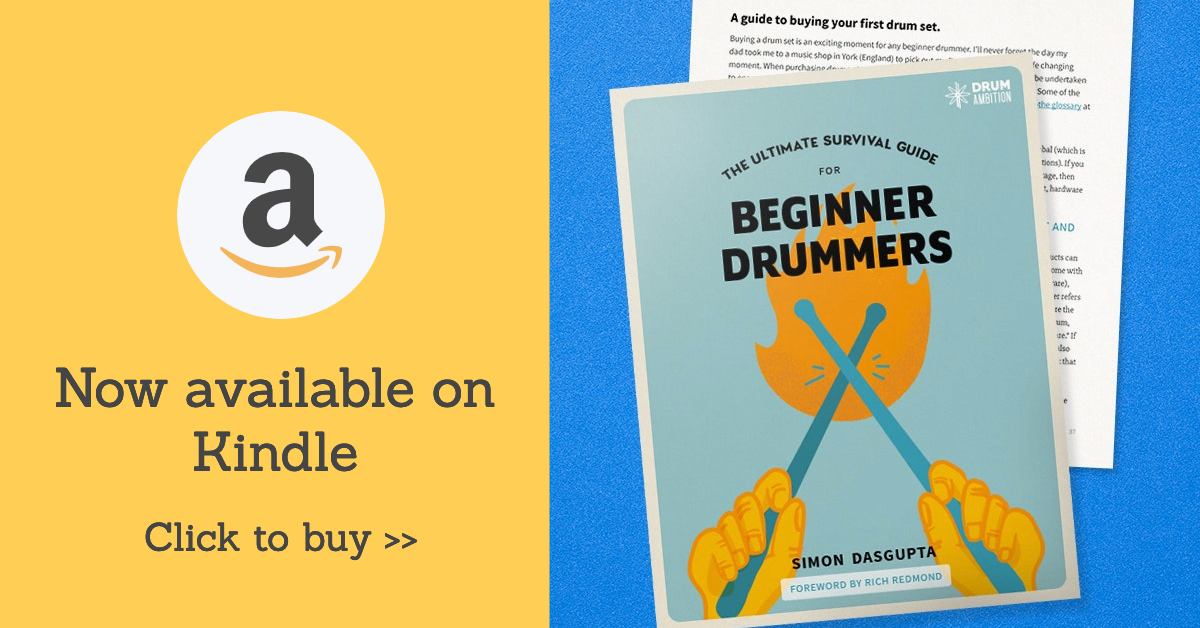The drum community is a wonderful thing. I have had the privilege of working in it for over 20 years, and I am always amazed at the willingness of drummers to share ideas and help aspiring musicians grow. There is a camaraderie amongst drummers that is very rare and unique, and I genuinely believe that you would be hard-pressed to find the same sense of community among other musicians.
The internet has given us unprecedented access to today's top drummers - something that could only previously be attained by reading the special interest magazines like Modern Drummer (USA) and Rhythm (UK), and watching what is now considered "old school" media like videos and DVDs. While the majority of today's media is readily available online, drum clinics are a unique opportunity to see performers up close and personal, and in many cases, a genuine chance to meet your drumming heroes.
Helpful related articles:
Specialist drum stores - Enhancing the drum community.
Video interview with Rich Redmond - Drummer for Jason Aldean.
Drum clinics are usually organized by brand manufacturers (featuring the Artists that use their products, also known as "endorsers"), drum stores, music schools and private music teachers. Although most clinics are partially subsidized by the Artist's sponsors, some event organizers charge an entry fee to cover costs, such as remaining fees, venue hire, staffing and advertising. Some clinics are free to attend, and others can cost anything from $10-$50+ per ticket depending on the individual event.
The format of the drum clinic is usually determined by the Artist, but will typically feature performances, solos, playing along to tracks, question and answer sessions, and often a signing/meet and greet segment at the end. Most performances are at least one hour in duration and some are longer. If the event is promoted in conjunction with brand manufacturers, there are normally some prizes and giveaway items. While these are mostly sticks, drum heads, drumming apparel and occasionally a cymbal or drum, I have seen some jaw dropping one offs over the years. The most memorable was at a Mike Portnoy Clinic (Formerly with Dream Theater) in the UK, when a young man won Mike's entire Tama Starclassic drum set, and a full set of Sabian cymbals!
You will also see the term "Masterclass" on the drum education circuit and this differs slightly from the traditional drum clinic. While drum clinics are mostly hosted in a theater seating environment with multiple spectators, Masterclasses are normally smaller, more intimate affairs, with fewer participants. At my studio in San Diego, a typical drum clinic will attract about 80 people, whereby we limit our Masterclasses to 15. The very word "Masterclass" implies that the subject matter will be of an advanced nature, but this isn't always necessarily the case, and many of my beginner students at San Diego Drum Lessons have benefited greatly from attending these showpiece events.
I have been extremely fortunate in organizing drum clinics with some high profile drummers over the years - mostly through my time working as General Manager of music stores in both the UK and USA. The list is long, but highlights include Louie Bellson (Drumming Legend, Duke Ellington, Ella Fitzgerald, Count Basie), Terry Bozzio (Frank Zappa/Sessions), Thomas Lang (World renowned Author, Clinician and Educator), Gregg Bissonette (Ringo Starr, ELO, David Lee Roth/Sessions), Mike Portnoy (Dream Theater/Avenged Sevenfold), Carl Palmer (Emerson, Lake and Palmer), Steve White (Paul Weller), Chad Smith (Red Hot Chili Peppers), John JR Robinson (Studio Legend), Ian Paice (Deep Purple), Steve Smith (Journey/Sessions), and my good friend Rich Redmond (Jason Aldean).
It's also fair to say that since I have hosted dozens of clinics, I have heard a lot of good audience questions over the years. One of my recent favorites was directed to Thomas Lang. "Is there any advantage to working out when playing the drums?" Thomas answered, "Only if you take your drum set to the gym and practice."
I have also seen the format of drum clinics change over the years, and many Artists are now appealing to a wider audience by presenting their messages at corporate events. One of the best examples of this is Rich Redmond's Crash Course For Success. During the presentation, Rich uses CRASH as an acronym for Commitment, Relationships, Attitude, Skill and Hunger, and relates his experience in the music industry to the challenges faced daily in the world of business. This is a great event for musicians and business people alike, and you can get more details here.
Some drummers are also taking the concept of the clinic and creating drum camps which are usually hosted over a weekend, and involve multiple performers, classes and guest speakers. Some come with accommodation and catering options and are great fun and amazing value. Check out the websites of Thomas Lang, Gregg Bissonette and Rich Redmond for some good examples. Drum camps are very much "hands-on" events where participants get to play and develop concepts. Clinics and Masterclasses do not normally present the audience with an opportunity to play, but this can vary from event to event, and it is best to check with your organizer.
If you get the opportunity to support drum clinics and events in your area, I highly recommend that you do so. For the most part, they are uplifting, motivational events, and an invaluable extension to the drum community at large. Good places to learn of upcoming events are on manufacturer websites (Yamaha Drums, Zildjian Cymbals, Vic Firth Sticks, Evans Drum Heads, for example), Artist websites, local music stores and drum community websites.
If you have any questions relating to this article, please email [email protected].
Simon DasGupta.


